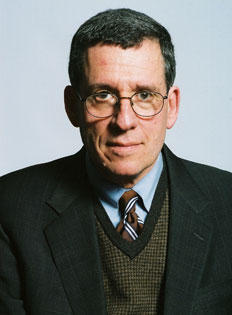Public skepticism about health isn’t confined to doubts about last year’s health care law: Most Americans also think the overall health of the public isn’t improving, according to a new poll commissioned by the Robert Wood Johnson Foundation.
The poll found that 45 percent of people thought the health of Americans had become worse during the past five years, and 40 percent thought it had stayed about the same. Only 13 percent thought it was better.
“Americans are convinced not only that the health care systems are not working, but health in the country is deteriorating,” said Robert Blendon, a professor at the Harvard School of Public Health who conducted the poll.
Blendon said the public view doesn’t square with most health barometers from the federal Centers for Disease Control and Prevention, which show many improvements. “If you called the CDC today, they wouldn’t tell you that” Americans’ health is getting worse, he said.
Blendon attributed much of the sour mood to the public’s larger concerns about the economy. “I think the economy is weighing it down,” he said.
Financial worries showed up elsewhere. Twenty percent of people polled said during the last 12 months they could not afford to pay for health insurance premiums, and 22 percent said they could not afford to pay medical bills.
On a policy level, health care costs were brought up most often as the greatest concern about the medical system, with 51 percent of respondents mentioning costs as one of their two top worries. Eighteen percent cited lack of insurance or access to care, and 14 percent mentioned low quality care.
Improving Medicare, the health program for the elderly, and Medicaid, the joint federal-state program for the poor, ranked at the top of health priorities people listed for the government to focus on. A total of 63 percent cited Medicare as a top priority and 56 percent cited Medicaid. Both ranked above preventing the spread of diseases, preparing for natural disasters or terrorist attacks, and combating chronic illnesses such as cancer and diabetes.
The poll found obesity was a major public health concern, rising above diabetes, HIV and smoking as a condition people named as a top health threat. One out of five respondents mentioned obesity as one of the top two diseases or health conditions they consider a threat, about the same as mentioned heart disease. Only cancer was mentioned more frequently.
The poll found 52 percent of the public favored a bigger government that provides more services for health, while 37 percent favored smaller government that provides fewer health services. Also, 60 percent of the public believed that if the country spent more on efforts to improve health and avoid disease, it would save money in the long run.
“Even if it may be costly, they understand it’s going to pay off later,” said Fred Mann, a spokesman at the foundation, which gives out more than $380 million annually in grants to fight obesity and improve health.
The poll was conducted by SSRS/ICR from Sept. 19 to Oct. 2 and surveyed 1,598 adults. The margin of error was +/- 2.8 percentage points.







